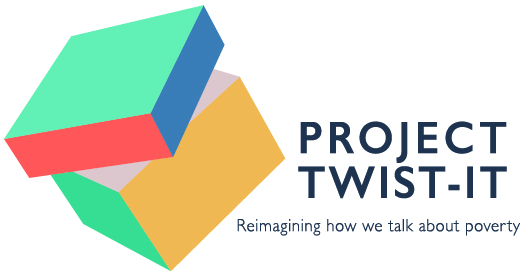Sarah Smarsh
Sarah Smarsh is a journalist and essayist covering socioeconomic class in the US. Follow her on Twitter at @sarah_smarsh.
Sarah writes from her first-hand experience of working poverty. Her book, Heartland: A Memoir of Working Hard and Being Broke, was a finalist in the National Book Awards and the Kirkus Prize and a New York Times bestseller.
“Growing up among a group that in the US is diminished with the slurs ‘white trash’ or ‘rednecks’ made me keenly aware of how language and narratives are harnessed to preserve unjust power structures. I am for stories that break us free from the confines of reductive, often destructive labels and get closer to the truth.”
Tell us a bit about your work. How would you summarise it?
I write about socioeconomic class in the U.S. My journalism and more personal writing are both informed by first-hand experience of working poverty and years as a journalist, professor and even development worker in non-profit social services.
What is your latest project?
My book Heartland: A Memoir of Working Hard and Being Broke was published on September 18, 2018. I'm also developing a podcast about the intersection of class and health, with a specific focus on rural poverty in the U.S.
Which themes appear most often in your work and why?
As a native of Kansas, I write frequently about rural landscapes and geographic influences on culture, politics, economics and social status. While I never intended to become a media critic, I also find myself frequently critiquing my own journalism industry for classist narratives or frameworks--providing a necessary corrective to make way for the stories I seek to tell, which often challenge stereotypes about the poor.
What inspires you most?
I am always moved and humbled when I hear from readers that a piece allowed them to feel seen or validated in their economic struggles, or that a piece opened their eyes to their own privilege and biases.
Why does telling stories – whatever the medium – matter?
Stories create our reality, I think, just as much as reality creates our stories.
Describe your ambitions for your work going forward.
I started writing Heartland some 16 years ago, so I hope to spend a good amount of time experiencing this post-completion moment and connecting with readers on my book tour. I'm also shifting toward more public speaking--getting out from behind the computer screen.
Why is it important to write about poverty and to tell stories that relate to it?
Growing up among a group that in the US is diminished with the slurs ‘white trash’ or ‘rednecks’ made me keenly aware of how language and narratives are harnessed to preserve unjust power structures. I am for stories that break us free from the confines of reductive, often destructive labels and get closer to the truth – which results in a more humane society.
How can stories and narrative using fiction inform our understanding of poverty and the people who experience it?
Narratives from people who have experienced poverty first-hand are crucial. Even the most well-intentioned middle-class journalist often doesn't know the right questions to ask or the right places to look in order to tell stories involving poverty. Ownership of an experience often allows one to bear witness to a fuller truth. Something I often write about that I find missing in ‘poverty porn,’ for instance, is the joy, creativity, laughter and particular freedoms that I experienced growing up on a small Kansas farm that someone glancing down from the outside might pity and cast as a sad place.
What do you think are the biggest myths in our culture surrounding poverty?
The US has long proclaimed itself a meritocracy: you get ahead by working hard. This denial of the class system suggests that the rich earned their comfort and that the poor are to blame for their lack of capital. The myth of correlation between personal value and net worth guides everything from public policy that criminalizes poverty to pop culture that casts the poor as ignorant, lazy and even dangerous.
Find out more about Sarah at https://www.sarahsmarsh.com/

